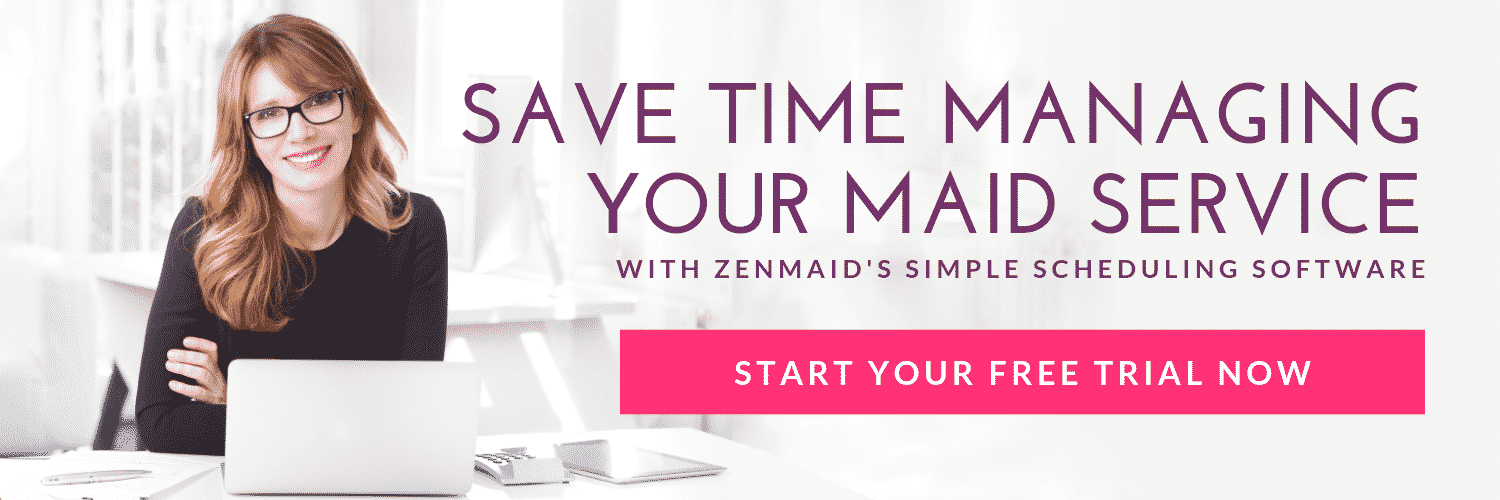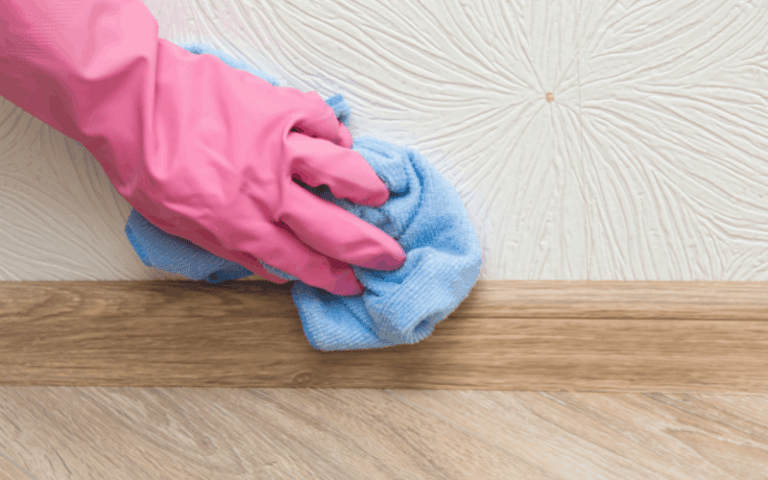Many maid service owners train their staff well, but once they start the job, they notice that some things begin to go wrong. This usually happens when you don’t immerse your new employees in the type of work they will be doing once they start.
It’s much easier to train your employees on abstract concepts and with reading material than it is to actually give them a house to clean. But if you want to make sure that your team is adequately trained and ready to work with your high-profile clients, they’re going to need some experience ahead of time.
This reigns especially true when you’re hiring employees with only a small amount of experience as a cleaner.
What tends to happen is, on paper, your cleaners check all of the boxes and seem to know your processes. However, once they’re out in the field, clients start complaining about the work done. This reveals that there are gaps in your training process.
So how do you properly train new employees who have less experience in the industry?
Through immersive training programs and activities like the ones we’ll outline in this post.
Table of contents
Use training houses to build hands-on experience
One of the most important milestones of a maid service owner is hiring cleaners to help you manage your clients. Not every cleaner you hire will have the same level of experience and know how to follow your systems and processes the first time.
After a few weeks of training, a cleaner may still make some mistakes. Especially if they don’t have much experience in the field. Most of the time, your cleaners just need more hands-on opportunities to improve their skills.
One way you can test new and potential employees in the field is to observe them in action. To help this cleaner get more experience, you can send them to a client who has agreed to pay a lower rate with the understanding that their cleaner is a trainee.
Beatriz and her team call these ‘training houses’. A training house is essentially the house of a customer who pays a lower rate than your other clients and lets you use cleaners-in-training to clean their homes.
This strategy is really helpful when hiring new cleaners who don’t have much experience but are eager to learn and improve their skills. By giving them the opportunity to get actual cleaning practice, you are helping them improve their skills and helping a customer who wants to pay a lower rate.
Meet them where they are
When hiring new cleaners, it’s common to take inventory of the skills they already have. Knowing these skills can help you assess how much training they need. It can also help you find small ways to improve your process.
You can ask new hires what processes they’ve used in the past to see where there are gaps and where they might excel. One of the main questions to ask when hiring new cleaners is how you can use their skills to accelerate your training process.
You just need them to get to your standards, update their skills and move through the parts they already know. If they have experience and a solid understanding of how a cleaning business works, it may well take less time to get through the training. They may not even need to go through the entire training process and only need to brush up on your specific systems.
On the other hand, you may have strict SOPs and processes in place. If you don’t want to deviate from those, sometimes it’s best to start their training from scratch.
When cleaners come into your business with their own skills, it can make the training process harder because they have to relearn how you do things. They may hold on to the way they were trained to do something before, which can make it harder for them to learn your unique processes.

Focus on one area at a time
Beatriz has been able to hire inexperienced cleaners and turn them into A-players by immersing new hires into one area of training at a time. She focuses on training them entirely in one area of the business before moving on and to another area.
For example, if your cleaning business services offices, residential homes, and Airbnbs, ensure that the cleaner is fully trained in how to clean offices before moving them on to residential homes.
If you are using training properties (as mentioned above), this can help substantially. Training your staff in the right environment can expedite the training process and give you a look at how they work.
It also gives you the opportunity to provide specific feedback and let them implement it without overwhelming them.
Commit to 2-4 weeks of training in each area of the business to see which areas they excel in and where they need more guidance.
Offer continuous feedback and quality management
Throughout this entire process, make sure you’re offering your team feedback and opportunities to improve. Not only is this important for their growth, but you need to check their work early on to maintain the systems and processes that your customers expect from your cleaning business.
This is also the time to keep an eye on how well they are learning. Be sure to pay attention to things like:
- Your new hire’s reliability
- Their ability to follow your process
- Attention to detail
- How well they work with the other members of your team
If you notice that they can follow all of your processes after about a month of training, are taking your feedback, and doing quality work, you can move them on to start working with your more elite clients.
You’re not only vetting whether they are a good cleaner. You want to make sure new hires are a good fit for your company in general. Notice how well they fit in with your company culture and get along with your other team members.

Remember, training is a continuous process
Keep in mind that training is an ongoing process. The training process doesn’t end after a few months. As your business continues to grow, you’re likely going to add new services and find new avenues to explore. Your staff should be able to grow with your company and adapt to new ways of working and new techniques.
So one of the most important things to look out for when you hire new team members is how well they can be trained. If they are having a hard time picking up your initial processes and following your systems, this is a sign that they may have difficulty learning other things further down the line.
For more tips on hiring and training new employees, check out Beatriz’s full presentation from the 2020 Maid Summit.
About the presenter
This article is based on a presentation by Beatriz Balde from the 2020 Maid Summit. Beatriz is the Director of Cleaners4ClientsLTD and author of Airbnb A to Z. In this post, we’ll share three strategies for training new employees and allowing them to gain more experience on the job.
This talk first aired at the 2020 Maid Service Success Summit.
The Maid Summit is an annual online event that brings together the most successful leaders in the cleaning industry, like Debbie Sardone, Angela Brown, Courtney Wisely, Amy Caris, Chris Schwab and more. Get free access to masterclasses and workshops that will help you to grow, scale and automate your cleaning business so you can get more leads and create more profit. Make sure you’re on our email list to find out how to get free tickets to the next event.

 Frustrated with your scheduling? Try the easiest-to-use calendar app, made by and for maid service owners.
Frustrated with your scheduling? Try the easiest-to-use calendar app, made by and for maid service owners.









